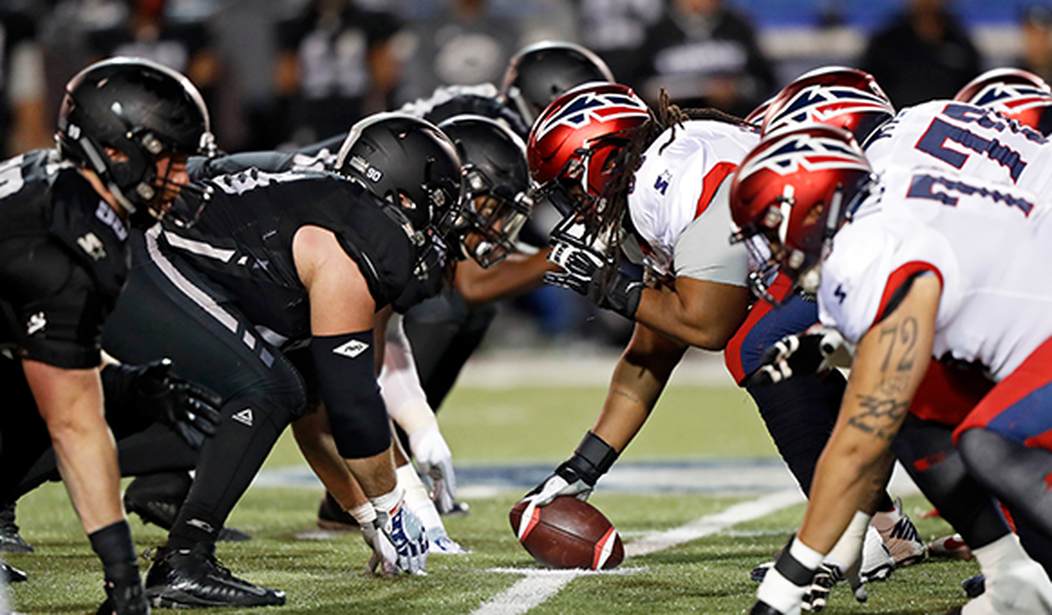Sports fans have been forced to make do with reruns of “classic” games from the past — many of them not very classic at all — during the time we’ve been in lockdown because of the coronavirus. But there’s a real cost to the absence of live sporting events in America that not only involves lost revenues for teams but also lost wages for stadium workers, parking attendants, and others who make it possible to hold these huge events in the first place.
According to an ESPN analysis, the pandemic has cost the U.S. $12 billion.
According to the analysis, about 3 million jobs in the country are reliant on sports.
“As an economist, you stand back, you look at the carnage that’s taking place — dumbfounded, awestruck, mind-numbing,” Patrick Rishe, who directs the sports business program at Washington University in St. Louis, told ESPN.com. “All of those phrases, they’re all relevant because we just have never seen anything on this scale.”
There are some costs associated with that $12 billion figure that you might not expect.
The analysis estimates that fans’ purchases on professional sports accounts for $3.25 billion and more than $370 million in wages have been lost by arena employees, many of whom are now unemployed. While $2.2 billion in TV revenue is lost, the study found tourism related to youth sports represents even more money that will evaporate ($2.4 billion).
The ultimate total figure will likely be even higher since the analysis did not include projected losses from NASCAR, golf, tennis and sports gambling, as well as various minor leagues.
It also doesn’t include the impact on the central city economies of major cities. Hotels, restaurants, and bars near the venue relied heavily on pre- and post-game business during the season to make a profit.
Collegiate and pro football hasn’t been canceled — yet. But fanless games at the college level would be a crippling blow to the athletic departments of many schools.
Football maintains hope it won’t be disrupted later in the calendar, but no sport is safe. Unlike uber-profitable NFL teams, college athletic departments are in a precarious position. Since football accounts for nearly half of all athletic department budgets — the Power 5 teams bring in almost $4 billion in revenue — several lower-profile sports teams will certainly be eliminated from every campus in the country.
“If [college] football goes down, that’s just a killer,” said Rick Gentile, who works in Big East broadcasting. “I don’t know how schools recover from that, God only knows.You could make a prediction, go crazy. The Pac-12 disbands? I’m making it up, but who knows?”
Let’s face facts; Congress cannot bail everyone out. It’s not an issue of “fairness.” It’s a matter of survival. We are bankrupting ourselves in order to avoid the catastrophe of another Great Depression. It can’t go on. Thousands of businesses are going to fail. Millions of people are going to lose their jobs. And Congress is not going to pick up the tab for every business or every industry in the United States that has lost money during the pandemic.
Sports are a nice diversion but are not essential to the continuation of the U.S. economy. People who work in sports businesses don’t want to hear that, but that’s the grim reality. It’s time to start picking and choosing winners and losers.
It’s time we began to prioritize who should survive this economic apocalypse caused by the coronavirus.










Join the conversation as a VIP Member